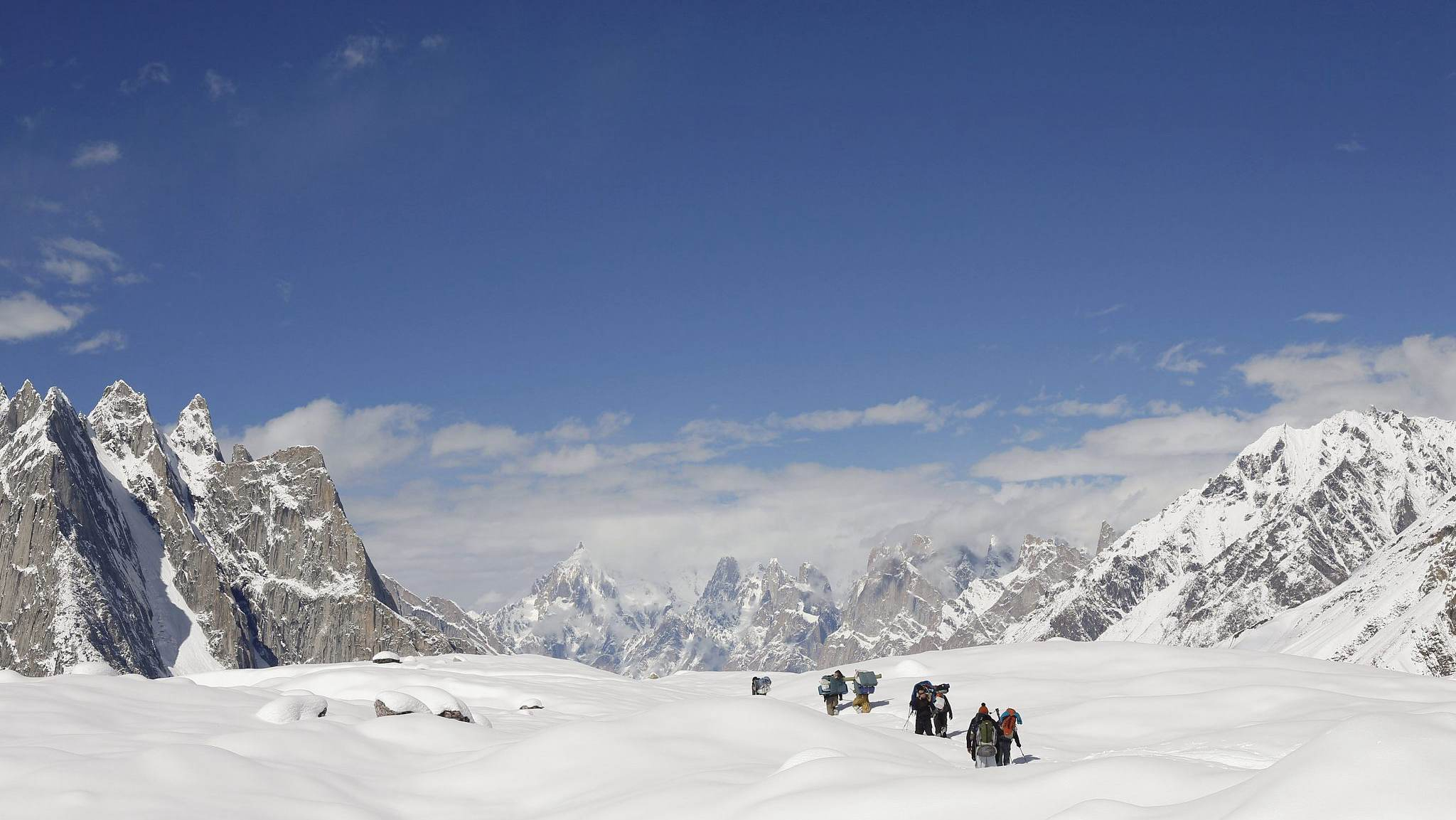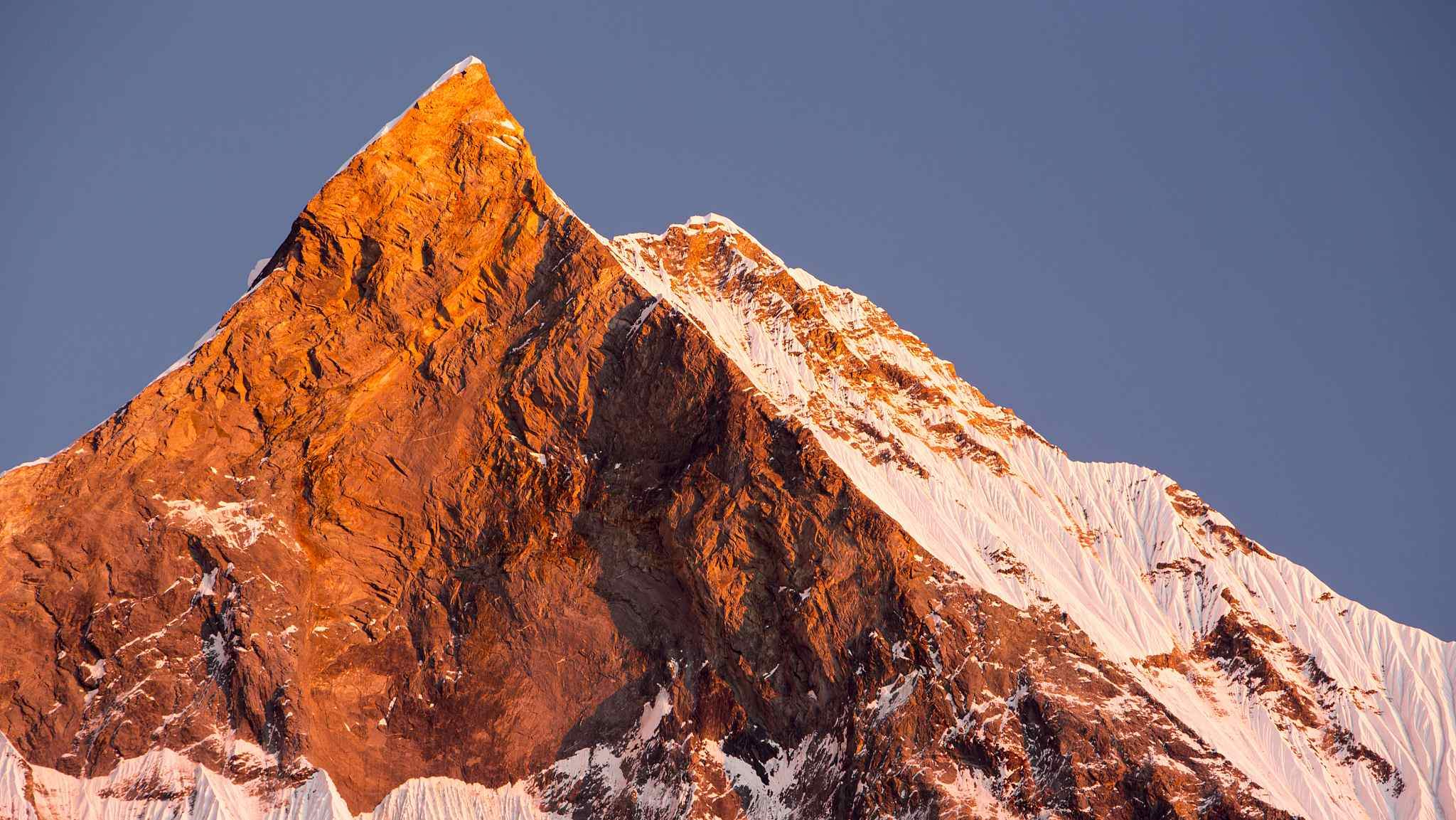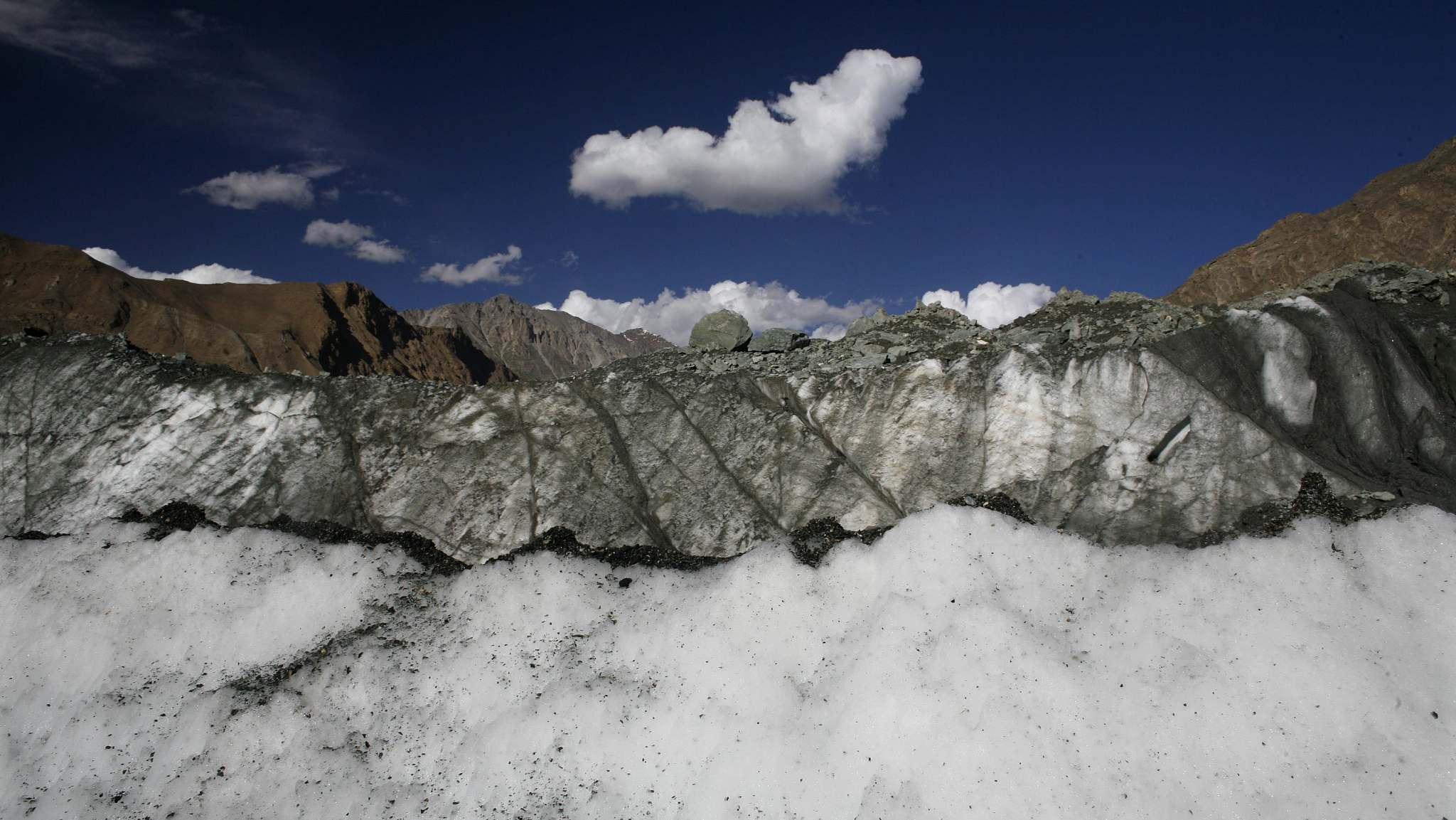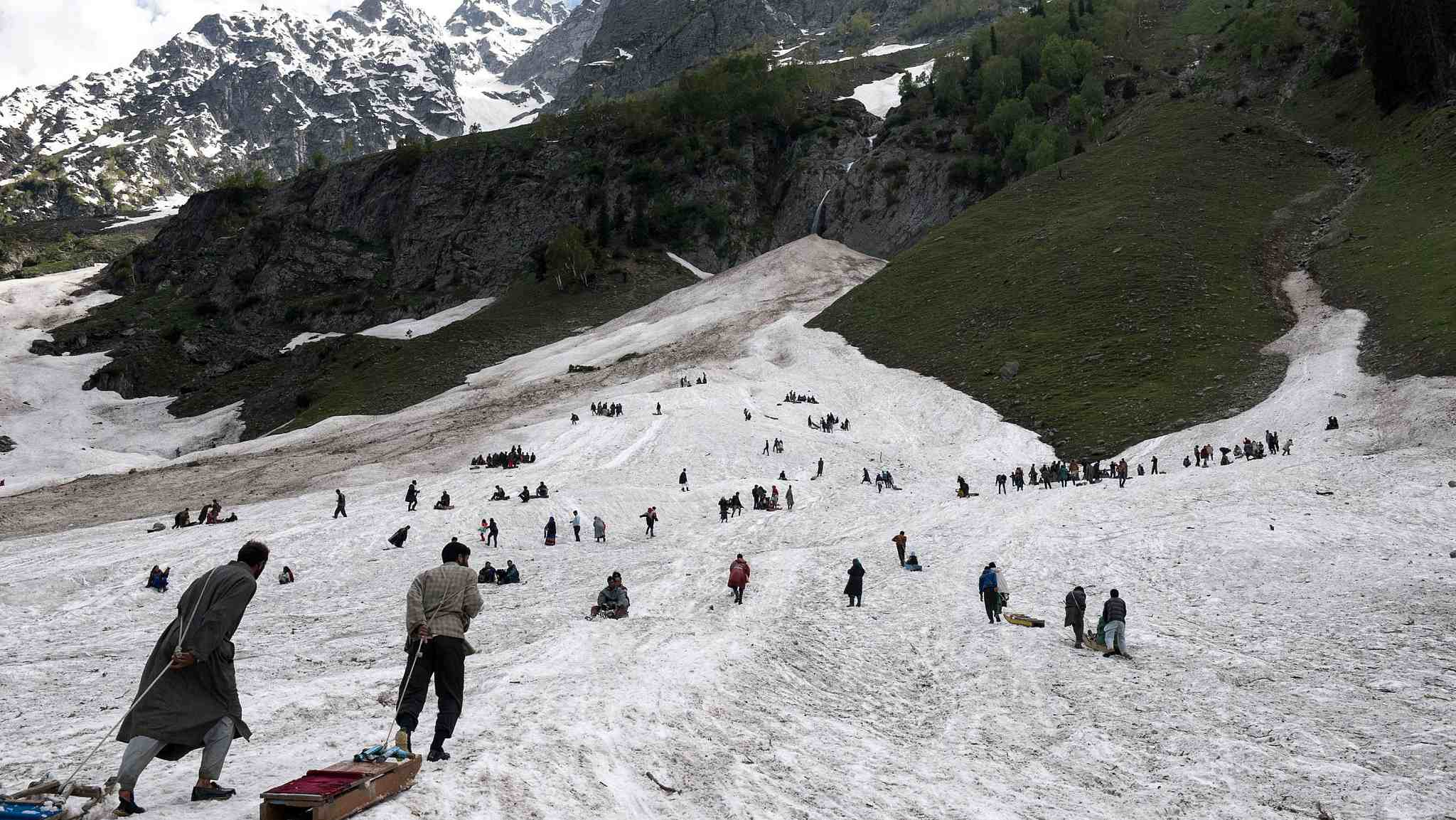
Nature
11:01, 14-Dec-2018
NASA study finds ice loss influences freshwater supply in Asia
Updated
10:12, 17-Dec-2018
CGTN

A NASA-led study has shown Asia's high mountain glaciers are flowing more slowly in response to widespread ice loss, which may affect freshwater availability downstream in India, Pakistan, and China.

Alpenglow at sunset on Machapuchare, Annapurna Sanctuary, Nepalese Himalayas. /VCG Photo
Alpenglow at sunset on Machapuchare, Annapurna Sanctuary, Nepalese Himalayas. /VCG Photo
The study published this week in the journal Nature Geoscience analyzed almost 2 million satellite images of the glaciers and found that 94 percent of the differences in flow rates could be explained by changes in ice thickness.
For more than a decade, satellite data have documented that the glaciers were thinning as the melt rates on their top surfaces increased.
However, it has not been entirely clear "how these glaciers are responding to this ice loss," said the lead author of the new study, Amaury Dehecq of Jet Propulsion Laboratory under NASA, the U.S. space agency.

An overview of Hopar glacier on July 6, 2007 in the Central Hunza Region, Northwest Frontier Province, Pakistan. /VCG Photo
An overview of Hopar glacier on July 6, 2007 in the Central Hunza Region, Northwest Frontier Province, Pakistan. /VCG Photo
Asia's mountain glaciers flow from the cold heights of the world's tallest mountains down to warmer climate zones, where they melt much faster, feeding major rivers such as the Indus and Yangtze.
The researchers developed algorithms that enabled automatic feature tracking to measure the distance that distinctive spots on the glaciers, like crevasses or patches of dirt, which traveled between an earlier and a later image.
"The relationship between thinning and flow speed is so consistent," said the study co-author Noel Gourmelen of the University of Edinburgh in Scotland.
In the few locations where glaciers have been stable or thickening rather than thinning, the study found that flow speeds also have been increasing slightly.

The Thajiwas glacier is a popular destination for Indian tourists. /VCG Photo
The Thajiwas glacier is a popular destination for Indian tourists. /VCG Photo
The gravity pull makes a glacier both slide on its base and deform, a slow movement caused by ice crystals slipping past one another under the pressure of the glacier's weight, according to the researchers.
However, as the glacier thins and loses mass, both sliding and creeping become more difficult, so the glacier's flow slows down.
Source(s): Xinhua News Agency

SITEMAP
Copyright © 2018 CGTN. Beijing ICP prepared NO.16065310-3
Copyright © 2018 CGTN. Beijing ICP prepared NO.16065310-3